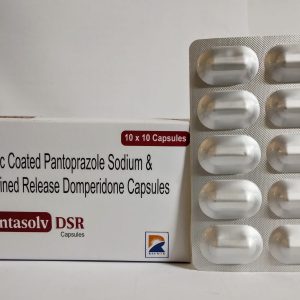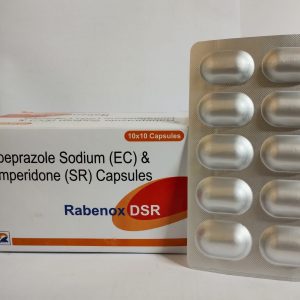DESCRIPTION
A highly effective inhibitor of gastric acid secretion used in the therapy of stomach ulcers and Zollinger-Ellison syndrome. Omeprazole belongs to a class of antisecretory compounds, the substituted benzimidazoles, that suppress gastric acid secretion by specific inhibition of the H+/K+ ATPase enzyme system at the secretory surface of the gastric parietal cell.
A specific blocker of dopamine receptors. It speeds gastrointestinal peristalsis, causes prolactin release, and is used as antiemetic and tool in the study of dopaminergic mechanisms. [PubChem]
SIDE EFFECTS
Symptoms of overdose include confusion, drowsiness, blurred vision, tachycardia, nausea, diaphoresis, flushing, headache, and dry mouth.
Side effects include galactorrhea, gynecomastia, or menstrual irregularities.
INDICATION
Omeprazole is indicated for the treatment of duodenal ulcers, benign gastric ulcers, gastroesophageal reflux disease (GERD), heartburn and other symptoms associated with GERD, erosive esophagitis, and long-term treatment of pathological hypersecretory conditions like Zollinger-Ellison syndrome, multiple endocrine adenomas, and systemic mastocytosis.
For management of dyspepsia, heartburn, epigastric pain, nausea, and vomiting.





